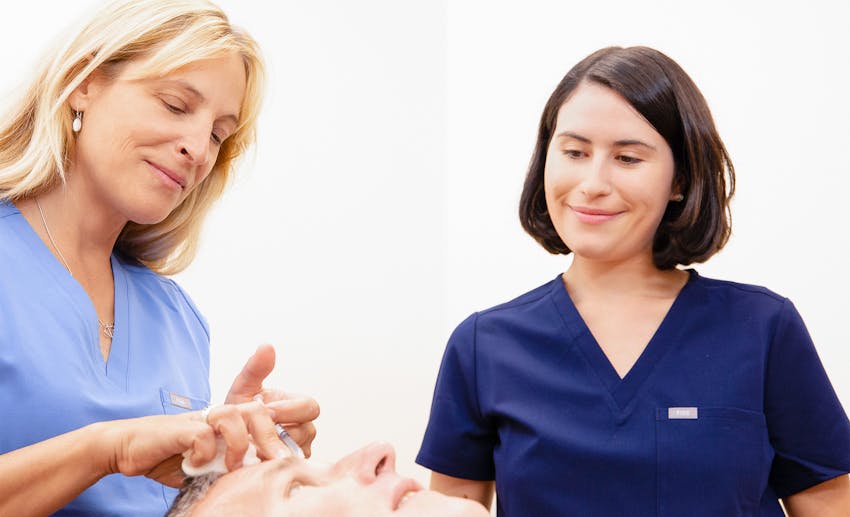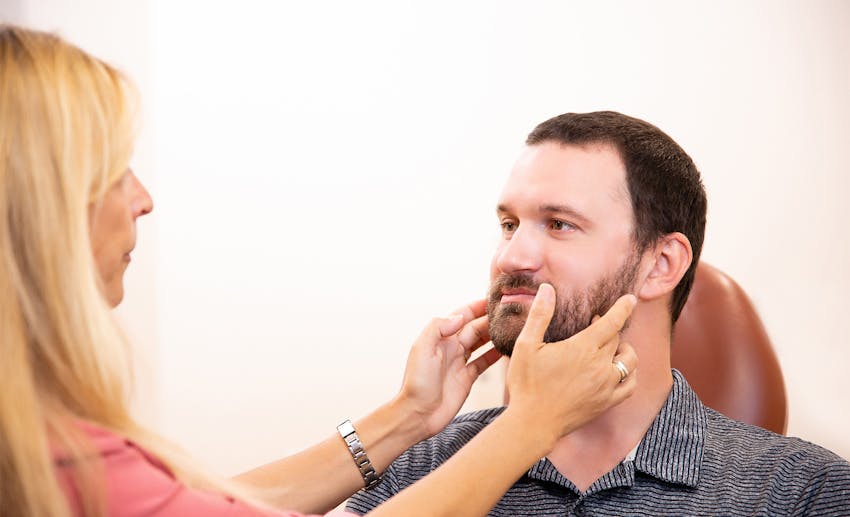Schedule a Consultation
Our job isn’t over until the patient is smiling
Contact Us
Facial paralysis is a medical condition impacting thousands of individuals worldwide. This condition presents varying degrees of loss of facial muscle movements or the inability to make facial expressions.

Some people are born with facial weakness, which can affect one or both sides of the face. The facial weakness can involve various parts of the face, such as the upper, central, or lower regions. Congenital bilateral facial paralysis is often called “Mobius syndrome.”

Bilateral facial paralysis is when both sides of the face are affected, with weakness or the total loss of facial movement. Bilateral facial paralysis has a terrible impact on the patient, who is left unable to express emotions.

Facial paralysis can manifest after a stroke, impacting an individual's ability to control facial muscles and convey emotions with facial expressions. Understanding the causes of the condition and having access to the latest treatments are crucial steps in managing this challenging condition.

Bell’s palsy is a condition that affects 20 to 30 people per 100,000 each year and is the most common cause of facial paralysis. The appearance of the condition is a very unsettling experience, appearing suddenly, leaving individuals with weakness or paralysis on one side of the face.

Synkinesis is a condition that many people with facial paralysis experience. Essentially, it’s the unintended, simultaneous movement of facial muscles when attempting to move a different set of facial muscles.

Ramsay Hunt Syndrome is a medical condition that can lead to sudden facial weakness, affecting one or both sides of the face. This syndrome shares some similarities with Guillain-Barré syndrome and its facial variant, Miller-Fisher syndrome, but it presents its own set of challenges when it comes to recovery.

Facial paralysis is a medical condition impacting thousands of individuals worldwide. This condition presents varying degrees of loss of facial muscle movements or the inability to make facial expressions.

Facial tumors affecting the facial nerve, while relatively rare, can have a profound impact on facial function and overall quality of life. Among these tumors, facial nerve schwannomas and geniculate ganglion hemangiomas are the most common.

Vestibular schwannoma, also known as acoustic neuroma, is a benign tumor that develops on the vestibular branch of the eighth cranial nerve.

Head and neck cancers are a diverse group of cancers that originate in various areas of the head and neck region, including the mouth, throat, nose, sinuses, salivary glands, and the skin of the head and neck.

Facial trauma can profoundly impact physical appearance and essential functions such as speaking, eating, and expressing emotions.

Chin dimpling is often the result of synkinesis and can significantly affect facial appearance and self-esteem. Dr. Tessa Hadlock, a renowned facial plastic and reconstructive surgeon and facial nerve specialist.
